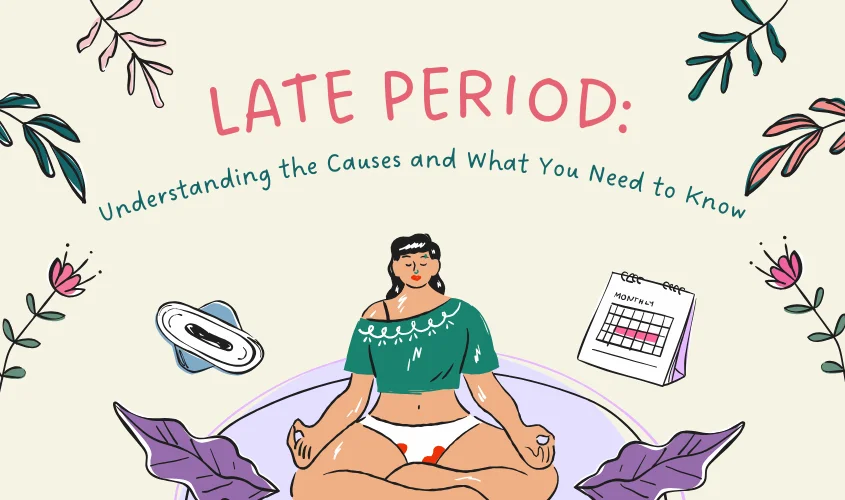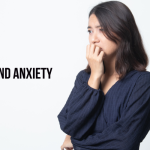
- 10.10.2024
- Period Problems
Understanding Late Periods and Their Causes
A late period can be a source of stress and concern for many individuals who menstruate. Moreover, it can indicate various underlying conditions. This article will explore the common causes of a late period, what it might mean for your health, and when you should consult a healthcare provider.
What is a Late Period?
A late period is typically defined as a menstrual cycle that is longer than your usual cycle. For most individuals, cycles range from 21 to 35 days. If your period is more than a week late, then it may be considered late. In such cases, it’s important to investigate the possible reasons.
Common Causes of Late Periods
Several factors may contribute to a late period, such as:
1. Pregnancy
A late period often signals pregnancy. If sexually active, consider taking a home pregnancy test. In addition, consult a healthcare provider for confirmation and prenatal care.
2. Stress
Emotional or physical stress can disrupt the hormonal balance in your body, leading to a delayed period. As a result, high-stress levels can affect the hypothalamus, which regulates your menstrual cycle. Consider stress-reducing techniques like yoga or meditation.
3. Hormonal Imbalances
Conditions such as polycystic ovary syndrome (PCOS) can cause irregular cycles. Furthermore, thyroid disorders can also lead to delayed menstruation. Hormonal fluctuations may require medical attention.
4. Weight Changes
Significant weight loss or gain can impact your menstrual cycle. For example, low body fat can affect hormone levels, leading to missed periods. Conversely, excessive weight can also alter your hormonal balance.
5. Lifestyle Factors
Certain lifestyle choices, including excessive exercise, can contribute to delayed periods. Athletes often experience changes in their menstrual cycle due to physical exertion. Therefore, maintaining a balanced lifestyle is essential for menstrual health.
6. Medications
Some medications, including contraceptives and certain antidepressants, can affect your menstrual cycle. If you’ve recently started a new medication, consult your healthcare provider to see if it might be causing your late period.
7. Menopause and Perimenopause
As individuals approach menopause, they may experience irregular periods. This transitional phase, known as perimenopause, can lead to missed or late periods due to hormonal changes.
8. Underlying Health Conditions
Conditions such as diabetes or celiac disease can impact menstrual regularity. It’s crucial to discuss any chronic health issues with your healthcare provider, as they may contribute to changes in your cycle.
9. Travel and Time Zone Changes
Traveling, especially across time zones, can disrupt your body’s internal clock and hormone levels. This disruption may result in a late period. If you’ve recently traveled, give your body time to adjust.
10. Eating Disorders
Conditions like anorexia or bulimia can severely impact menstrual cycles. If you are struggling with an eating disorder, it’s essential to seek professional help, as this can have long-term effects on your reproductive health.
When to Seek Help
If your period is late for more than a week, or if you have severe symptoms like pain or heavy bleeding, please consult your healthcare provider. Moreover, they can conduct tests to rule out any serious conditions. In some cases, an ultrasound or blood test may be necessary.
Using the Selin App for Tracking Your Period
The Selin app is an excellent tool for tracking your menstrual cycle. It helps you monitor your periods, ovulation, and symptoms, providing notifications if your period is late. This feature ensures that you stay informed about your reproductive health, allowing for proactive management.
Conclusion
A late period can have various causes, from pregnancy to stress and hormonal imbalances. In conclusion, understanding these factors is crucial for maintaining your menstrual health. If you have concerns about your cycle, don’t hesitate to seek medical advice.
Learn more about menstrual health and related topics: Understanding Period Cramps: Causes, Symptoms, and Relief Strategies | Understanding Pregnancy Symptoms: Early Signs and Changes to Expect














